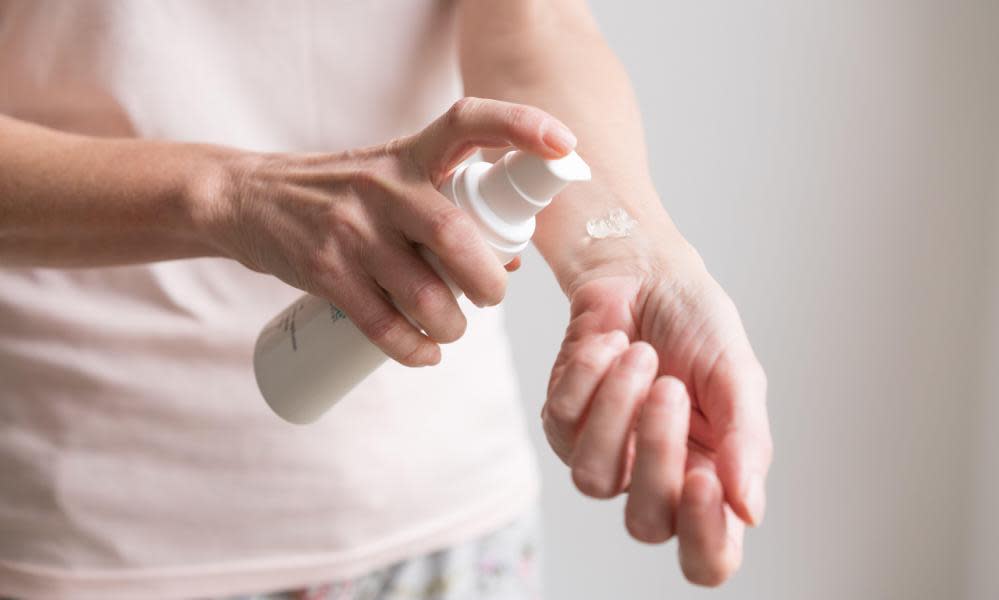NHS website crash prevents access to cheaper HRT in England

Health officials have apologised after women were unable to get a certificate online to allow them to access cheaper hormone replacement therapy prescriptions.
Cheaper hormone replacement therapy (HRT) should have been available in England from Saturday under a scheme designed to reduce prescription costs.
Women prescribed HRT as part of menopause treatment will be able to obtain a year’s worth of medicine for £19.30, saving hundreds of pounds annually. But women have been unable to arrange the prescription prepayment certificate (PPC) online due to the NHS Business Services Authority website being down.
The NHSBSA apologised and said it was working to fix the problem, adding that women would be able to backdate their certificate if they bought it at a later date.
A spokesperson said: “We’re aware that some people are experiencing issues when trying to buy an HRT PPC this morning following the introduction of the new service.
“We’re working to put a fix in place as soon as possible and we apologise for any inconvenience.
“We can reassure people wanting to buy a certificate that if they aren’t able to buy one today, they will be able to backdate their certificate if they buy it at a later date.
“If you need your HRT medicine before you buy the HRT PPC, ask your pharmacist for an FP57 receipt when you pay for your HRT medication. You will be able to get a refund from the pharmacy. The HRT PPC can start from April 1 2023.”
The Welsh Labour MP Carolyn Harris tweeted: “The day has come women going through #menopause have been waiting for - the annual pre-payment certificate for #HRT launches ... But can anyone actually access the site? This has been so hard fought for by women and they can wait no longer.”
Health officials estimate the change will benefit about 400,000 women, with a PPC for HRT valid for 12 months. Under the plan, women can use the certificate against a list of prescription items, although not all HRT products are covered.
Related: Carol Vorderman ‘disgusted’ by ministers’ attitude to menopause
Women can get the certificate online – when the website is back up and running – or in some pharmacies. It can be used as many times as needed in the 12-month period. The certificate includes access to eligible HRT items, including patches, tablets, pessaries, and gels and creams applied to the skin.
Prof Dame Lesley Regan, the women’s health ambassador for England, said: “Making HRT easier to access will significantly improve the lives of many women who choose to use it, enabling them to reach their full potential.
“Many women do not realise that they are going through the menopause. Helping to make them aware about the inevitability of becoming menopausal is an important first step. The next step is improving awareness that HRT may be an option to help women manage this stage of their life course.”
The minister for women’s health strategy, Maria Caulfield, said the move was a key commitment of the government’s women’s health strategy.
“Often it’s necessary to use more than one type of HRT, and many women I have spoken to needed to try a few different types to get the right medication that works for them,” she said.
“Everyone is different, and price should not be a barrier to treatment – reducing the price of a year’s worth of HRT to under £20 is a huge moment of levelling the playing field.”
Dr Louise Newson, a GP and menopause specialist, said the scheme was “a step in the right direction” but raised concerns about its limitations.
“There are too many barriers for women to access menopause treatment and cost of HRT is one so I hope this will really make a difference.
“However, it is disappointing to see that testosterone will not be covered by the certificate. Testosterone is recommended by the National Institute for Health and Care Excellence for symptoms of low libido where HRT alone is not helping and, in my clinic, patients often say it helps with other menopausal symptoms including brain fog and low mood.”
PA Media contributed to this report

 Yahoo News
Yahoo News 
